The Voluntourist's Dilemma: What is the Cost of Giving Back?
Read on to find out how giving back contributes to community initiatives and where the money goes when volunteering abroad.
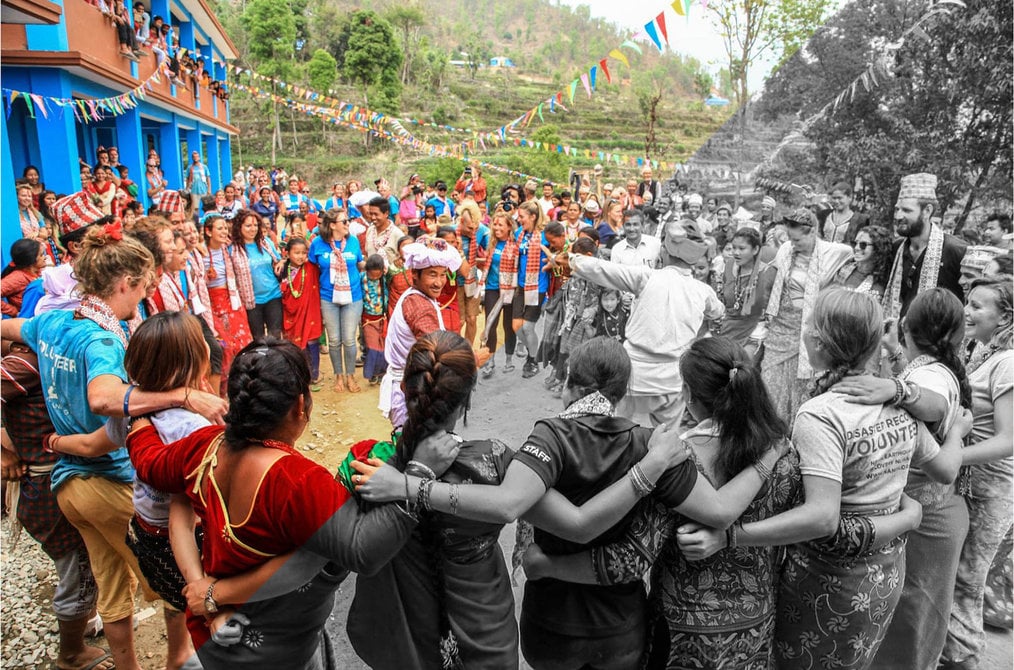
A couple months ago, Pippa Biddle reached out about writing a piece on the Go Overseas blog. She's a writer whose work focuses mostly on issues of voluntourism, sustainable development, and travel. What you're about to read today is Pippa's attempt to answer three tricky questions about the voluntourism trend:
- Does voluntourism have the positive effect on communities that we expect it to have?
- What's the role of money? And how is it helping (or not helping) economies abroad?
- Why do we still feel compelled to volunteer abroad? When is it a good thing?
I understand that this isn't an easy topic to discuss, and voluntourism and international development at large isn't black and white. What works in one country may not in another. Some of these criticisms apply only sometimes. Regardless, I hope that it will spark a healthy, intelligent, and respectful conversation about voluntourism. I genuinely want to hear your feedback and comments on the piece.
So, without further delay, I invite you to sit down, grab a cup of coffee or tea, and listen to what she has to say.
What it Costs Volunteer Communities Abroad
Volunteer travel has increased in popularity drastically over the past few decades. Though it's wonderful that so many people want to help abroad, this type of travel has opened up some pretty sticky questions around ethics. How and where does volunteering -- a typically altruistic act -- become more about the volunteer than the community? What's the real impact? What should we be thinking about when getting involved in volunteer projects abroad? Do our short-term actions have unintended consequences in the long term?
Waiting for a Mattress: How Volunteer Aid Increased Unemployment
Recently, I was thinking about this inability to look ahead while eating breakfast at one of my favorite eco-lodges in the Dominican Republic. It's a country I’ve worked and played in for over seven years and come to know well.
The lodge's dining area is perched on the edge of a steep mountainside and opens towards the ocean. Thick wooden beams support a palm frond roof and frame the DR’s northern coastline. I had been talking about a development in the bottom left corner of this frame. I’d thought it looked strangely like the urban storage facilities that surround the New York Metropolitan Area, whose cold March I’d only recently left.
The rows upon rows of identical shiny metal squares were houses, I was told.
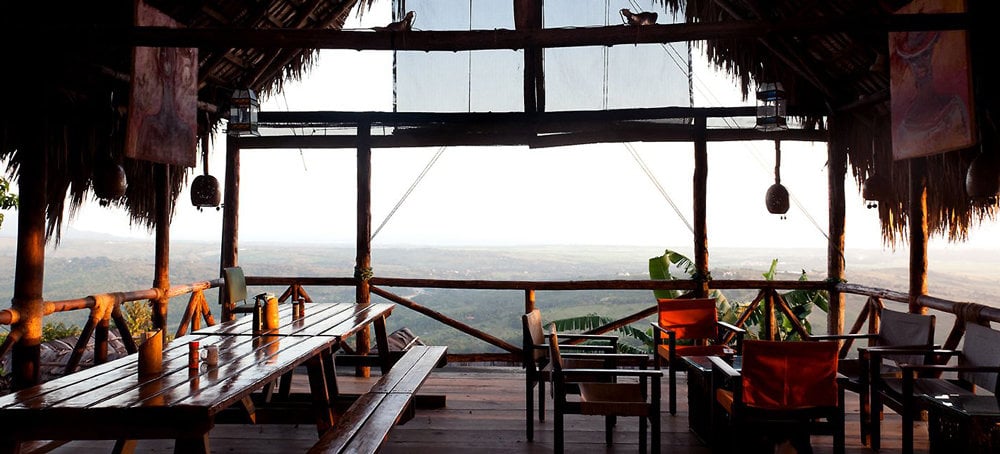
A few years earlier, The Samaritan Foundation built the village to house over 200 impoverished families. They included those who'd found themselves out of work and displaced after a sugar cane factory in Monte Llano shut down. Offering medical care, clean water, a school, and other services, the 'village' looked like an amazing opportunity. People quickly moved in.
Many of the residents lacked steady employment. Further, they had lost the strong community ties they would have relied on to support them in a time of need when they moved. So, understandably, they were grateful when volunteers began to arrive in waves. They brought with them food, clothing, toys, and household goods.
As is typical of service trips in the area, volunteers mostly visited the village during the day and returned to walled-in resorts and beach-side hotels in the evening. While in the village, they would hand out gifts, like new mattresses, only to those present to receive them. People who were home benefitted the most. Those commuting to low-paying jobs missed out on the much-needed supplies and appreciated luxuries. So, the latter group began quitting their jobs, choosing to stay home to wait for gifts instead of working to earn a living.
I’ve never been able to verify this story completely. But, after years of seeing similar things myself throughout the DR and elsewhere, I have little reason to doubt there's truth to it. What had been an altruistic initiative to give a community a fresh start, had turned into a developmental nightmare.
Yet this isn't an isolated event. There are far more stories that shine a severe floodlight on volunteer travel than just that of Samaritan Village. Stories of orphanages and purposefully decrepit schools built solely to attract foreign dollars blast into the social consciousness a few times a year. They serve as an example of what can go wrong with volunteer travel.
When not properly managed, these projects can cause some negative long-term outcomes. Communities can develop a decrease in self-sufficiency or loss of specialized workers and industries. Poverty becomes fetishized.
Of course, that was never the intention. This type of volunteer work started off from a good place, but somewhere along the way went wrong. What happened? And why?
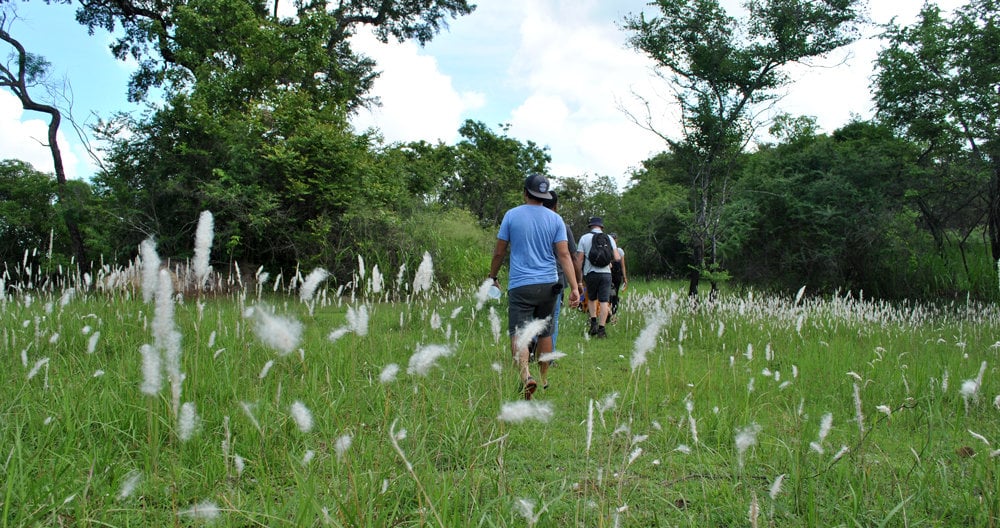
Volunteers are Unaware of their True Impact
The vast majority of volunteer experiences are not consciously counterproductive or exploitative. Most voluntourists don't go into a community thinking they'll do harm. Yet, the lack of ethical boundaries (requirements, outside monitoring, etc.) that make voluntourism possible are the same blurry lines that lead to paternalistic development practices, the fetishization of poverty, and even the exploitation of children.
Yet this damage continues to happen because it's largely invisible to the rest of the world. As in Rob Nixon argues in his book, Slow Violence and the Environmentalism of the Poor, slow violence is easy to ignore and easy to write off as no big deal, flying under the radar until it’s creating large and widespread change, exacerbating the vulnerability of already vulnerable peoples.
To me, that sounds a lot like what’s going on with voluntourism. The true, and at times negative, impact on communities abroad isn't seen by those outside the community. Potential volunteers are unaware, and as a result, will continue to unwittingly contribute to the problem until it becomes an even larger issue.
Of course, voluntourism is different from volunteer-based development work. The presence of volunteers with specialized skill-sets, such as doctors and engineers, can be a huge help to communities in need.
But to practice responsible voluntourism, we need to track the impact of volunteers. We need to better match their skills to community needs. Volunteer projects need to emphasize community needs before volunteer benefits.
How Voluntourism Can Actually be Dangerous
Another big concern in the international development circle is making sure that jobs that need qualified individuals are filled with qualified individuals. As James Sutherland, the International Communications Coordinator at Friends-International, a children's charity in Southeast Asia, states "many volunteers have absolutely no childcare skills, and they're being asked to perform a duty of care for children who are vulnerable," he says, "In a developed country, that would not happen."
Young high schoolers like my past-self are told that they can teach English in Africa. College students are put in scrubs and used as doctors assistants in South America. Somewhere between Googling “volunteer trips” and booking, the people taking part are convinced that they really do have the skills necessary to be successful at what they are signing up for. Sometimes, that results in dangerous behavior.
In the CBC DocZone documentary, Volunteers Unleashed, a young premed volunteer who was assigned to help with an important medical procedure passes out in the operating room, as the doctor rushes to help her, the patient goes into distress. It sounds like a sick joke, but it’s not. You walk into the doctor’s office only to be told that a kid will be doing your procedure today, that they’ll be learning on you, and you have no option but to let them do it because there is no other medical care available.
Getting surgery is scary, but having that doctor be assisted by a completely untrained teenager who just learned to read a blood pressure cuff that morning is straight-up terrifying. Furthermore, it puts those being treated in very real danger.
In the Christian community, the purpose of service trips, or Missions, is made even muddier as the first tenant of the adventure frequently is to “grow closer to Christ”. By leading with an intangible concept as the primary purpose, something that can not easily be measured or quantified, it’s possible to call every trip a success without having to examine the real impacts participants are having, and how they might actually be hurting the communities that they are going into.
All of this is to say that we should put our skills where skills are needed. As a volunteer, treat finding a project like you would finding a job. Be picky, really read the job description. As a volunteer placement organization, make the role and responsibilities clear from the outset. Require that volunteers have a certain level of qualifications and skills -- which, by the way, some organizations are already doing through programs that are specifically meant to send trained engineers, doctors, and nurses into communities who need their skills.
The "Savior Complex" and Not Recognizing Locals as Leaders
I remember flipping through channels when I was nine or ten years old before landing on the image of a small, dirt-stained child wearing a donated softball jersey two sizes too big. A female narrator speaking on behalf of the Christian Children's Fund or any of the dozens of other organizations that sell "Sponsor a Child" packages begged me to give him a chance. It was up to me, she said, to save them.
From there, those images of small, mostly black or brown children found their way into other places. They appeared in my sidebar ads online, fundraising mailings, fridge door (after my family 'sponsored' a kid in Brazil). Eventually, they filled my Facebook feed. Friends and friends of friends posed for fake candids surrounded by young, anonymous faces.
These ads mean to help. Instead, they position impoverished and generally dark-skinned children as an 'other' whose survival depends on the generosity of those more fortunate. They lead well-meaning, predominately white and privileged people to believe that they must intervene.
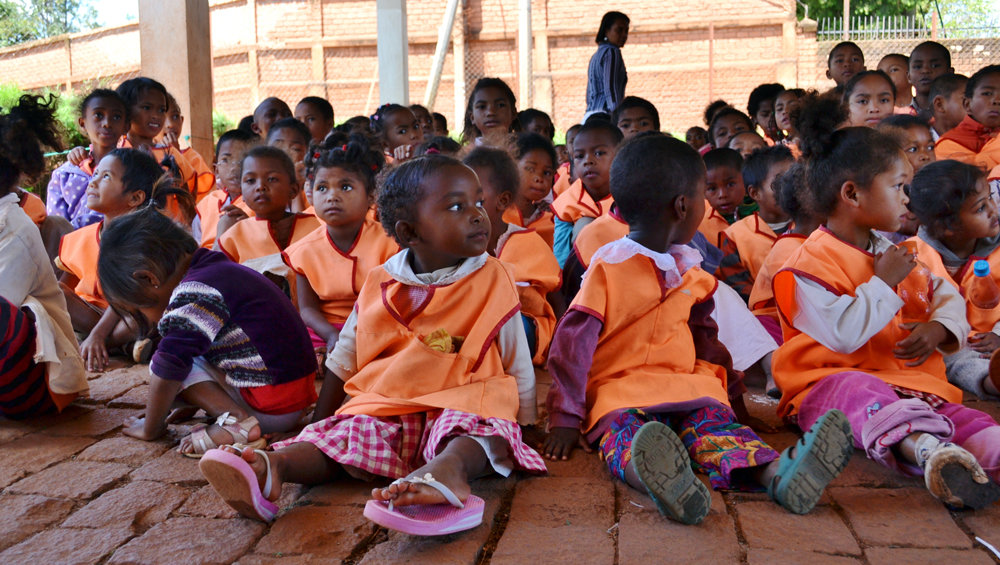
This is a problem because it gives the false impression that only we as outsiders can help and keeps us from recognizing locals as leaders. We're less likely to see communities that differ from ours as equally capable. As a result, we use development strategies that aren't particularly helpful or adapted to the communities we're in.
It also leaves out a significant part of what it's like to live in a developing country (take, for example, the image above. It was taken in a developing country but is quite different from what you'd see in a Save the Children ad). It leaves out the hope, the progress that's being made. The reality is that voluntourism and privilege are deeply intertwined, and not always in a good way.
Is it Really 'Better than Nothing'?
At times, volunteer placement companies, voluntourists, and their advocates will claim that their work is better than nothing (some, not all). They argue that they're creating more good than would be possible without their presence. Except, this isn't always true. If you get the wrong volunteer on the ground (i.e. someone who's very disrespectful to the community, unqualified, or uncommitted) or operate a volunteer project without the buy-in / involvement of the community, a long-term vision for sustainability, or don't regulate the projects properly, you could end up dong more harm than good.
For example, when volunteers give handouts (candy, pencils, money), they're supporting a "dame" or "gimme" culture. These cultures see begging, not work, as a way to improve their quality of life. Again, there's the example of untrained students brought up earlier.
The "better than nothing" argument isn't good rationalization. It's a red flag and probably a sign that whoever is using it is ignoring potential problems.
There's a reason why the argument exists. Volunteers want to believe that they can help, no matter how unskilled they are. For the people who take part, it's educational, adventure-filled, and emotionally fulfilling. But this argument doesn't help the communities we claim to be helping. With the very real ethical issues and the long-term repercussions that may take decades to fully reveal themselves, voluntourism isn’t “better than nothing,”. It’s dangerous when done thoughtlessly.
There is something that's better than nothing. Own your ignorance and travel as a tourist. Embrace your role of visitor instead of claiming the role of savior. The way to help a community isn’t to presume you know how to fix it and that going there yourself will be a solution. Instead, seek out those who know the community and development best. Help them help the communities.
I still haven’t gotten around to visiting those rows of identical houses, and I don’t think I want to. I think it would be hard to stay optimistic about what good can be done in the face of how badly good intentions can turn out. We can do better than what we’ve done. We have to play the long game.
The Economics of Volunteer Travel
In the first section of our series on voluntourism, we looked at the ethics of voluntourism. In this section, we'll shift our attention to another aspect of the industry: money. Specifically, what is the economic impact of voluntourism? Where is the money going? And how could we make it more impactful and efficient?
The global volunteer travel market is worth over $2 billion USD annually. There's an estimated 10 million people taking part in service-based travel each year. Further, this number is continuing to grow. This growth isn't necessarily good.
The Money Could Be Better Spent
By looking at the economics of voluntourism, it's possible to spot flaws in the logic used to support it.
Scenario 1: volunteer trip
| Expense | Amount |
|---|---|
|
Volunteers' personal expenses x 12 |
$12,000* |
|
Administration costs |
$2,000 |
|
Total for project |
$10,000 |
Take a typical volunteer service trip. Let’s say you have 12 people who pay $1,000 USD each (before flights) to go to South America to build a new dormitory at an orphanage. The $1,000 per person is on top of an equal or even greater amount raised independently from personal fees. So the group, in total, spends approximately $24,000.
This sum covers the costs of the group's expenses while in Peru. It pays for their meals, lodging, transportation, excursions, and activities. In addition, it contributes to all the costs of the building project itself.
Scenario 2: donation instead of travel
| Expense | Amount |
|---|---|
|
Volunteers' personal expenses x 12 |
$0 |
|
Administration costs |
$2,000 |
|
Total for project |
$22,000 |
Let's now say that you, as a theoretical participant, admit that your groups $24,000 would go further if spent solely on the project.
It would help hire local workers and buy locally made materials rather than lower cost mass market ones. If you acknowledge this, then you must admit that what you are doing is ultimately about you, not about helping. This isn’t to say that you're not helping in an immediate and surface sense by volunteering. Rather, it means your presence is unnecessary to the success of the project.
One caveat I will mention though: the presence of volunteers does generate income among local businesses (where volunteers are spending money on snacks, water, and other personal items) and with homestay families, who usually receive a small stipend in exchange for housing volunteers. So yes, a straight donation will go further towards supporting a development project, but often the presence of volunteers brings income into other, indirectly related, businesses within the community as well.
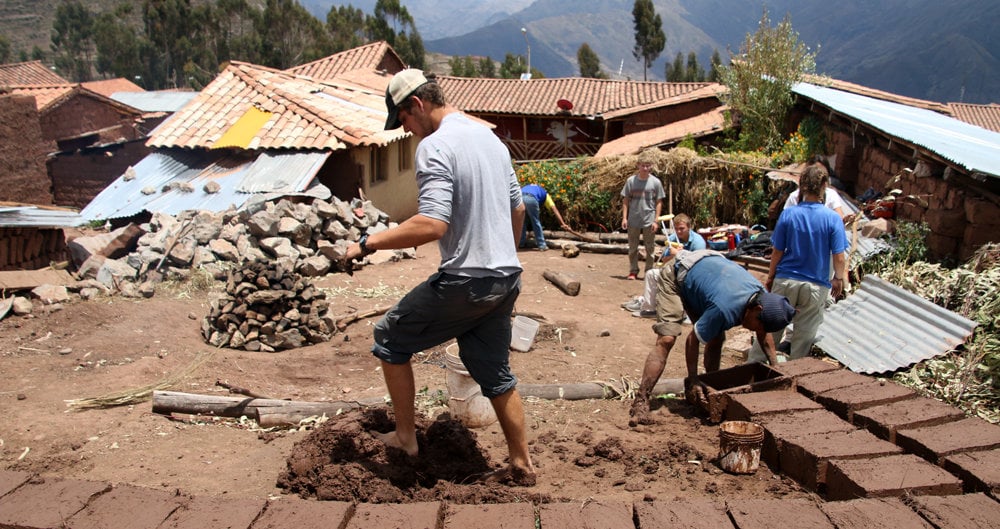
This example especially applies to people traveling abroad to do work for which there are likely local craftsman, far more talented than you or I, in need of work. If you aren’t a doctor, engineer, or bringing some other specialized skill into the community, it’s likely that your presence is taking a job away from someone within the community. You are, in your actions, messing with the economics of the place you want to help.
Another way to think of it: Your $24,000 could not only build a dormitory, but inject the community with much-needed capital, kick-starting the economy in way that is far more sustainable than any handout ever will be. Yet, you’re choosing to give only a fraction of that. The vast majority or your money is sucked away to cover the costs of you being there.
This Growing Market Isn't Regulated
The service-based travel market is almost completely unregulated. With significant concern over the effects that primarily unskilled and mostly short-term travelers have on the communities they visit, you’d think that there would be some form of unified oversight. There isn’t. Small organizations like Tourism Concern, an ethical tourism non-profit in the UK, are trying. Yet, even they struggle to map the market and enforce industry expectations.
As the market continues to balloon, pleas for some sort of regulation are growing increasingly louder. Prospective travelers, tour operators and coordinators, and communities inundated by well-meaning, but often poorly prepared volunteers, are all asking for regulations. Without them, it's far too easy for illegitimate companies to take advantage of volunteers and communities.
The experts know this exploitation is happening already. Gabriel Popham, writing for the Thomson Reuters Foundation, draws a direct relationship between “growth in the multi-billion dollar volunteer tourism industry,” and “concerns of overexposing vulnerable communities to unskilled foreign labor and dodgy operators exploiting foreigners for profit.” It's a concern long held by critics of the industry, but is just starting to permeate mainstream journalism.
Yes, there are satirical viral videos and memes that reach the masses. Yet, a genuine discussion on the issue could help volunteers make better choices about how they help communities abroad. As a result, less money would be spent covering travel expenses and exorbitant fees. More money would go to the communities who truly need it.
Market Opportunity Lures Travel Giants, not Development Experts
In early summer 2015, Carnival Cruises announced the launch of Fathom. This new cruise line would pair Caribbean vacations with volunteer activities.
Applauding their new product as innovative, they're really just jumping into the already expansive voluntourism economy. They're tacking unskilled work onto an exotic location and calling it volunteer service. Passengers will have a variety of volunteer activities to choose from including “teaching English in schools, helping to cultivate cacao plants, and build water filtration systems.”

The first mega-corporation to dip its toes in the water, Carnival’s entry into voluntourism is a signal of the estimated market opportunity. I had the chance to talk with Tara Russell, the President of Fathom, shortly after they announced their first destination would be a place I know quite well. They'll be going to the city of Puerto Plata in the Dominican Republic.
For months I’d heard about the new cruise ship port being built. I’d heard that there would be some sort of community engagement aspect coming in. I was both excited and nervous to hear what was going on from the point of origin, the President of Fathom herself.
What I found was a business opportunity masked as social good and presenting itself as innovation. It was not unlike the majority of existing for-profit tourism outfitters. Their optimism, voiced through language of transformation (“our desire is to not only transform the place but also to transform the life of the traveler...”) was predictable. Their answers to questions of effectiveness were canned.
I then asked why they would have cruise ship tourists doing jobs, like planting trees and building water filtration systems, that are more than within the skill-level of the locals. It was argued that the workforce simply didn’t exist. This is something that just about anyone driving through the DR would have a hard time believing. Again, the needs of local communities were secondary to the market opportunity at hand.
Where Russell, and Fathom as a whole, do seem to have their head on straight, is with the concept of long-term engagement. Russell argues that while they could write a check, or donate a part of their profits to local organizations, their physical presence will create an “ongoing revenue stream of work” for local businesses. This is a concept that's integral to economic development.
The root of Russell’s presentation of Fathom was one of profit, profit generated through the selling of purpose, but profit none-the-less. Yet, it's easy to see how travelers get roped into the sales pitch of Fathom and other voluntourism experiences like it. We want to help. Voluntourists' intent is rooted in a good place.
Fathom may have jumped the gun, though. They recently slashed their prices just four months before their first ship will set sail, a sign that the concept isn’t selling as well as expected. Further, the key selling points, service and cultural immersion, are now less prominent. The opportunities for “sightseeing and fun” are given a higher billing.
Let's Stop Putting Profit Before Progress
Simon Hare, development director of British charity Globalteer, was quoted by the Thomson Reuters Foundation as saying,
“There are small local outfits as well as big corporations who see volunteering as a way of driving profits rather than an integral part of a long-term strategy for communities with real needs. At best this can make volunteering a waste of time and at worst it can actually be harmful.”
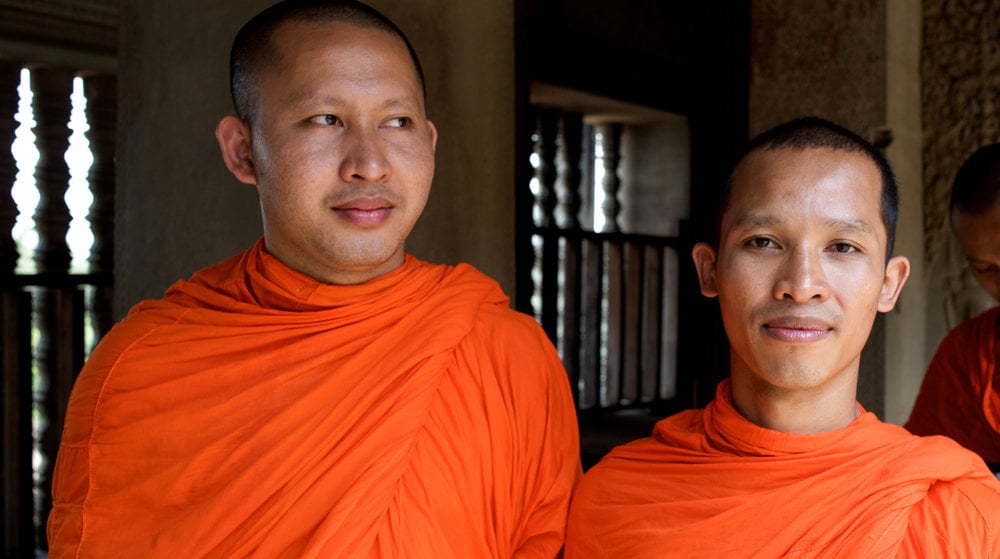
Selling social good, it seems, is just as key to the economics of voluntourism as the trips themselves are. It is through the marketing and sale of the ability to change the world that this $2 billion+ market has been developed, after all. That's not to say social good is a bad thing -- volunteer travel definitely has its heart in the right place. But because of flawed economics and a lack of regulations, voluntourism often doesn't result in its intended effect.
So, instead of trying to buy our way into social change, redirect your energy. Embrace other ways of benefitting a community that are both sustainable and involve you traveling there. Be culturally immersive. Support local businesses. Make friends. Learn. Be an active supporter of the communities you visit without buying a branded t-shirt or picking up a hammer.
It's Time to Increase Regulations
The voluntourism market is big. At $2 billion annually and growing, it's time that we treat it as what it is. It's an industry that needs regulations and to be held to standards of efficacy and sustainability.
Without oversight, voluntourism companies and those who go on their trips are putting the communities that they are intent on helping in danger. They're opening them up to unsustainable and unethical development practices. They turn whole towns into guinea pigs, test subjects for unskilled westerners' development daydreams. The 'save the world' mentality that voluntourism embodies is commendable, and we need fresh ideas and youthful idealism when tackling world issues.
But, we also need systematic thinking, pragmatic strategies, and thoughtful resource allocation. We need to empower local communities to manifest the change they want to see, not just the change a company half a world away decides they need.
Why We Still Volunteer Abroad
The idea of voluntourism has been celebrated and mocked, praised and challenged. From the NY Times to satirical videos, the terms 'voluntourist' and 'voluntourism' are more widely used than ever. People are also starting to accept "voluntourism" as more than just a playful term. They're questioning the practice and asking "how ethical is this?"
Despite criticism of voluntourism, travel companies continue to rationalize why volunteering abroad makes sense. The volunteer travel industry presents their trip packages as meaningful, life-changing, and affordable. Especially for young and unskilled people, the trips look attractive. And when there is a clamor for a service and the chance to make money, the market responds by offering opportunity.
Yet there must be a root cause, beyond the vague desire to do good, that causes well-meaning people to buy into the voluntoursim experience. There must be a reason that, despite all the evidence that it isn't efficient or in the best interest of communities, people are doing it anyways.
What Drives Us to Volunteer Abroad?
If you look at the volunteer travel industry just from the perspective of the volunteers, it's a pretty sweet gig. It makes sense why people want to take part. People volunteer, and will continue to volunteer abroad, because:
- Hard work feels good
- They crave adventure
- They want to learn about themselves
- They want to learn about the world around them
- They want to open their eyes
- The things they see stay with them for a lifetime
- No one should have to live in poverty
- Everyone should have access to clean water and reliable healthcare
- Education is a human right
- Bureaucracy moves too slowly
- They want to help...
However, this is a cripplingly narrow way of looking at the industry. In exploring voluntourism, we need to take into account the opinions of locals and industry professionals who know the space.
Remember Who We're Supposed to be Helping
In a series of articles published in 2007 as part of the Brookings Institution's Brookings Policy Brief Series, David L. Caprara et. al. argue some of the benefits of volunteer travel. They emphasized the positive impacts service work has on those taking part and write that international volunteers "tend to develop enduring habits of civic engagement." This improves both the lives of communities abroad and the volunteers' communities back home.
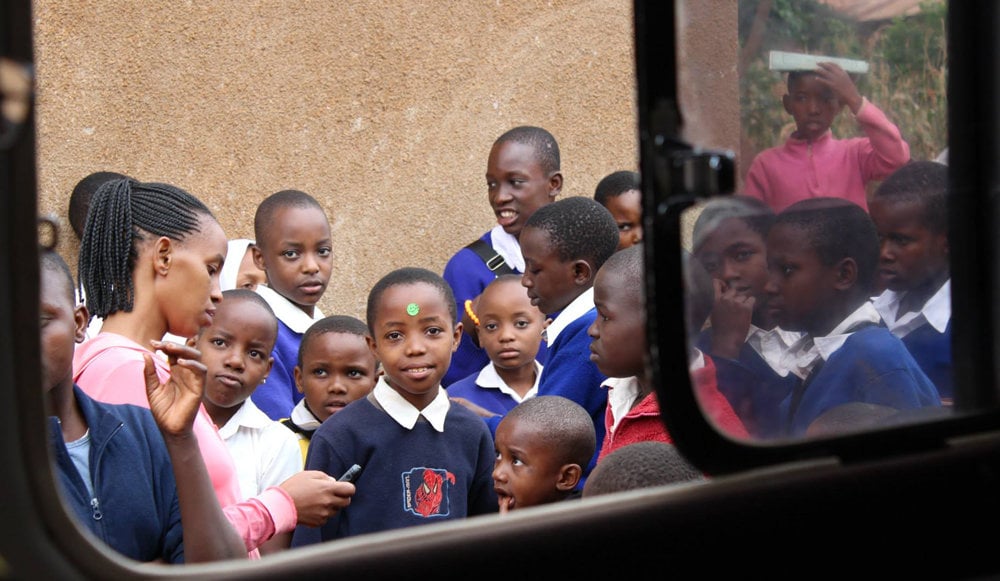
I will never argue that volunteer trips, both domestic and abroad, aren't positive learning and growth opportunities for those who take part. That would be a stupid argument to make, especially because I believe that who I am today was shaped by the travel I’ve been able to do, some of it voluntourism.
From packing vegetables for underprivileged families in Connecticut to working with HIV+ children in the Dominican Republic, I am who I am because of the perspective and scope afforded me through volunteer work. Even my ill-fated trip to Tanzania made me more socially and globally aware, fueling what has become a passion for sustainable, community-focused development.
But let’s take who I’ve become, and how every person who volunteers is changed, off of the table, because that isn’t supposed to be the purpose of volunteer travel in the first place. Almost every piece I write is met with the same line of criticism, “but it changes my/my child’s life, so isn’t is worth it?” I’m sorry, but no, that’s not a good enough reason.
If your purpose in going abroad is to help someone else, but you measure the success of your mission by how much you’ve helped yourself, then you are balancing the wrong moral budget lines.
This isn't to say that you should absolutely never volunteer abroad, but do so with others in mind. Make sure your motives are truly unselfish and that you have something valuable to give.
Adjusting Our Methods and Marketing
There are good reasons for why we are drawn to voluntourism trips. It’s also easy to buy into the hype when your role models are encouraging you to take part, but as long as the success of a trip is measured by the volunteer's experience, we’re looking at the wrong side of the equation. We are doomed to failure.
Rather than trying to measure the benefit to the volunteer, we should be looking at quantifying the benefit to the community. It's a process of observation and study that leads to more sustainable development work without having to kill opportunities for travel and adventure altogether. After all, we absolutely still want to encourage volunteership.The impulse that inspires a young person to volunteer is the right impulse and the reasons that they want to go are good reasons.
Intent is not the problem. Execution is. Now we have to take that impulse direct it towards the most morally sound and productive response: traveling in a way that empowers and invests in local communities rather than presuming what’s right for them and prescribing our unskilled young people as the solution.
What Does This Mean For Me?
Wanting to travel isn't a bad thing, and wanting to give back isn't a bad thing either, but the combination of traveling to new places and doing development work is rarely as simple as trip providers and travel organizations make it out to be. Instead of buying into the hype, think about these points before planning your next trip:
1. Where do you want to go and why?
Travel is exciting, and you should do it as much as you can, but knowing why you want to go somewhere is important. It's ok to be a tourist in Tanzania, and a volunteer in your hometown. Ask yourself: Where do I want to go and why?
2. Do you really have the skills to volunteer abroad?
Knowing English doesn't make you an English teacher. Think hard about what you're qualified to do and whether your dollars, spent locally, could actually do more. Ask yourself: Who am I really trying to help and do I have the skills necessary to do so effectively?
3. Is volunteering really the only way to support the community?
There are lots of ways to support a community without taking part in voluntourism initiatives. Consider staying in small, locally-owned hotels/hostels instead of big, foreign-owned resorts, for example. Ask yourself: Is there a way to travel to the place I'd like to go that will support local communities directly without having to "volunteer"?
Maybe volunteering isn't for me?
If, after reading this, you're not sure if volunteering is a good fit for you, but you still want to help communities abroad, travel differently, or find a means to meeting another, similar travel goal, there are alternatives.
- Live with a host family (it's not just for students!).
- Take a language course.
- Find an NGO, development organization, Peace Corps volunteer, or other initiative you want to support then visit them or bring donations. (Note: please do not bring "hand outs for the kids" but go through a vetted organization to donate items/money.)
- Support local businesses, hotels, and shops while you're abroad.
- Wait. If you're not skilled yet, hold on to the dream for a little later in life.
Do your answers still lead you to volunteering?
This series has been rather harsh on volunteering abroad, but there are absolutely times when having a volunteer in a community abroad is a very positive thing. It's just maybe not as common as the marketing might have you believe.
If you have specialized skills that cannot be found locally and you still want to volunteer, do it. Just volunteer responsibly.
Thoroughly investigate the program provider and the host organization you'll be volunteering with. Whenever possible, work directly with organizations and be honest with yourself about what you will accomplish in the time you are there. Sometimes, it isn't much.
Also remember that training a local is like teaching a man to fish. By passing along your skills you'll have a much greater impact than you would otherwise.
